|
“Have you seen Him?”
The question is uttered among the bewildered Apostles and echoes out to us this Easter season. In the Gospel reading for Divine Mercy Sunday, Thomas hadn’t seen him. Thomas didn’t believe the men who had become his brothers when they told him about the resurrected Christ. Not even the details of his wounds swayed him. “Unless I see the mark of the nails in his hands and put my finger into the nailmarks and put my hand into his side, I will not believe,” he says. Believing meant vulnerability. It meant more heartbreak. The Man for whom Thomas and the others had left everything, the Teacher who had sent them two by two to preach and heal, the Master who had washed their feet and fed thousands with a few loaves and fish was gone—betrayed, tortured, killed. It was easier not to believe. It was easier to stay hidden away in the Upper Room with a heart as locked up as the doors. It was easier to go back to what they knew. Even Peter resumed fishing. Today as we continue in the third week of Easter, I ask you what the disciples likely asked each other in those first days: Have you seen Him? We prepared for Easter throughout 40 days with prayers, fasting, and almsgiving. We kept vigil with Jesus on Holy Thursday in the Garden of Gethsemane and in Caiaphas’s prison. We shuddered at His scourging, covered our ears to the mocking, and knelt in front of Him at the foot of the Cross. We waited in silence as the tomb was closed and we entered into Holy Saturday. Then, we celebrated His rising on the third day. But as we continue in the Easter season, can we truly say we have seen Him? Have we experienced Easter joy or are we locked in the Upper Room or back to fishing? Grief, anger, passivity, media consumption, alcohol, food, loneliness—all of these could be our Upper Rooms. All of these could be means of locking our hearts to the Good News of Jesus Christ. But what does Jesus do in response to our locked hearts? He shows up. He extends His wounded hands. He breathes peace. This is what this fifty-day Easter season is all about: encountering the Risen Lord. Seeing Him. Touching His wounds. Sharing a meal with Him. Allowing Him to open the Scriptures to us and reveal God’s plan of salvation—even in the here and now, even in our own lives. Our fasting, grieving, and sighing is over. Our desert is over. But sometimes entering into the light, joy, and beauty of the Easter season can seem jarring after all we’ve worked on spiritually or given up. Even more so, we look at the world and may not hear the Easter song. We see humanity still trapped by sin, death, and division. Perhaps our hearts, like Thomas’s and the other disciples’, are broken. Perhaps after a year of fear, isolation, confusion, and division, it feels easier to lock the doors than to believe. Believing requires faith, hope, vulnerability. It requires opening yourself to the possibility of another heartbreak. And it requires letting go. And so, Thomas says, “I will not believe.” And we may say, “I cannot believe.” But Christ’s wounds change everything. They show that suffering can be redeemed. That our scars, while part of our story, are not the end. That death has been humbled, and that glory and resurrection await us. Over these next few weeks of Easter, as we prepare to celebrate the Ascension of Jesus and the gift of the Holy Spirit at Pentecost, I invite you to spend time with the disciples as they sit once again at the feet of Christ. Jesus spends 40 days with them—the same length of time as the Lenten season—instructing them, encouraging them, accompanying them. Do not let this most holy of liturgical seasons end on Easter Sunday. I invite you today and every day to encounter the Risen Lord. Spend time with His wounds. Show Him your own. Allow His words to penetrate your heart: “Peace be with you.” Only then can the doors of our hearts be unlocked. Only then can our wounds be transfigured. Only then can we fall to our knees and proclaim with Thomas, “My Lord and my God.” Click here for more ideas to cultivate Easter joy.
0 Comments
“O my people, I will open your graves and have you rise from them, and bring you back to the land of Israel. Then you shall know that I am the LORD.”-Ez. 37:12-13 “Come out!” The words reverberate and resound in the stench-filled tomb. We too need to hear the words proclaimed to the dead man as we approach the end of our Lenten journeys. Come out! Lent has been our own time of preparing for resurrection—abstaining from anything that deadens us to the voice of Christ inviting us to the fullness of life. For the past few weeks, we have participated in spiritual practices that renew and refresh our spirits. We’ve journeyed with Jesus in our own deserts. And the culmination of this journey is about to occur in only a couple more weeks. Lazarus’ resurrection precedes the Resurrection that changes everything. It is a glimpse of what awaits us after death. The once rotting man stumbles out of the dark and into the light of Christ—his dear friend. Lazarus’ sisters, Mary and Martha, do not even say his name when telling Jesus of his illness, but identify him simply as “the one you love.” The one you love…What a beautiful way to be identified. I think about this for a moment before realizing this is what we are all called to and all invited to: to be the ones Christ loves. This short phrase is our deepest identity as baptized sons and daughters. We are the ones He loves. And as we prepare for Holy Week and Easter Sunday, this reality will be fully demonstrated: “For God so loved the world that he gave his only Son” (John 3:16). Jesus will tell us on Good Friday, embracing us with arms wide open on the Cross, “you are the one I love.” As a result of this great gift, Christ can call us to resurrection—not only after death, but in the here and now. So many realities in our world today threaten to numb us from this true reality. Perhaps we find ourselves in Mary’s shoes. When she and her sister hear of Jesus’ coming, Martha runs to meet Him, but Mary stays where she is. Was hope dead within her? Was she too consumed with her grief to dare to have faith? Did death have the last word? Perhaps many of us feel the same way: disillusioned. Tired. Grieving. Doubtful. But Mary’s sister, Martha, shows us another way. Her path leads to the resurrection of her heart in the here and now. In today’s Gospel, the sisters seem to have traded places. Today, it is Martha who chooses the better part. She runs to meet Christ at the moment she hears of His coming. In spite of any doubt, fear, disillusion, or grief—she acts in hope. And this leap of faith is what enables her to give Jesus her all and say, “Lord, if you had been here, my brother would not have died. But even now I know that whatever you ask of God, God will give you.” (emphasis added) (John 11:22) In these words, I hear her say, “Lord, I am disappointed. I am grieving. My brother has died and you were not here. Had you been here, he would have lived. But I give this desire to you. I trust in you. Let it be done according to God’s word.” This, in a sense, can be Martha’s fiat. Her surrendered disposition, mixed with faith, trust, and hope, is what then enables her to confirm, “Yes, Lord. I have come to believe that you are the Christ, the Son of God, the one who is coming into the world.” Martha has joined the woman at the well and the Apostle Peter in confirming Christ’s identity as the Messiah. She has “come out” of her own tomb. This past calendar year has likely felt like a tomb for many of us. Perhaps we feel most like the seemingly abandoned Lazarus languishing in the dark. “Where were you, Jesus?” we may ask with Mary and Martha. “Do you not care that the one you love is suffering?” Jesus does more than care. It is so comforting to read that “Jesus wept” at the knowledge of Lazarus’ death and became greatly perturbed. I can imagine the same, if not a greater, reaction at the death of his earthly father, Joseph. Christ weeps at our suffering. The Creator shudders to see His creation perish. This is not what we were made for. And in His humanity, Christ weeps with us and for us. But not only will the Son of God weep for His loved ones; He will die for them in just a few days. It is not enough for Him to acknowledge our suffering—He takes it on. He transforms it. He transfigures it. He resurrects it. As we approach the end of the Lenten season, let us not stay put with Mary but run out with hope like Martha. I pray this Easter Sunday to say firmly with her, “Yes, Lord. I have come to believe that you are the Christ, the Son of God, the one who is coming into the world.” We are the ones whom He loves. Let us spend some time relishing, resting, and growing in this identity in the remainder of the Lenten season and beyond. In these final weeks of Lent, let us continue to “come out” of our tombs with our prayers, fasting, and almsgiving so that we may not stumble as Lazarus did but run out towards Him who calls our name. Let us come out into the light. For more resources to accompany you on your Lenten journey, please click here. Click here for this Sunday's Mass readings. A lyric of one of my favorite Advent hymns, “O Holy Night,” shares the simple yet profound posture in which we are called to enter into the Advent and Christmas seasons: on our knees. Perhaps many of us already find ourselves there—either out of reverence or sheer exhaustion. For many, the year 2020 will forever be overshadowed by confusion, darkness, anxiety, fear or stress due to the COVID-19 pandemic. Perhaps you, like me, have just wanted it all to be over. We may feel tired of the masks, the canceled events, the physical distance from our friends and loved ones, uncertain job security, or the fear for our health and for those around us. Our hands are raw from sanitizer. Our hearts are raw from stress and confusion. Pandemic fatigue is real. Is this exhaustion, stress, and confusion similar to what the Jewish people felt as they traversed to their hometowns for Caesar Augustus’ census two thousand years ago? “Where is the Savior foretold by the prophets?” they must have thought. “Where is the king who would overthrow all oppressors and establish God’s kingdom forever? Where is God? And why does he seem silent?” For God’s Chosen People, continued faith and hope must have been a hard choice. For God’s chosen people, continued faith and hope is a hard choice. And it is precisely when we are caught up in our feelings of negativity, sadness, or desolation that we fail to see God at work. Too consumed by looking inward, we forget to look up and see the star. It is precisely for this reason that hardly anyone attended the most important event in all of human history: the birth of the Savior of the World, a child born quietly in the recesses of Bethlehem. So where do we find ourselves? Are we grumbling that God has not done enough to fix our broken situation? Are we stressed about the logistics to get our family to the census? Are we awaiting our own version of the Messiah, making our own golden calves? Do we look back longingly, preferring the slavery of Egypt to the wilderness? Or have we abandoned our relationship with God altogether? Finally, are we on our knees? Mary models this posture with her very life. I cannot help but imagine that she received the news from the Angel Gabriel on her knees. “How can this be?” she asked, greatly troubled at what was said in the midst of the holy and miraculous encounter. Her fiat was only possible because of her posture of humility. This receptivity is what every Christian is called to emulate. This posture in the presence of God is also important because kneeling is a physical reminder of reality: God is God, and we are not. Put another way, God is Creator, we are created. By kneeling in prayer, we enter into a dialogue with God in a posture of humility that reflects the true order of reality. Kneeling is also a posture of vulnerability that manifests our littleness before a great God. This littleness is not belittling, but reveals our true dignity. We have the courage to kneel because, in a sense, God knelt first. As St. Paul reminds us, “He emptied himself, taking the form of a slave, coming in human likeness; and found human in appearance, he humbled himself” (Phil 2:7). How can we then fear to approach such a gentle and humble Savior? If 2020 has taught us anything, it’s that we are not in control. Mary experienced this too. She did not anticipate a virgin birth, losing her Son for three days, or watching her Son’s crucifixion. This lack of human control is the truth regardless, but it’s a reality often obscured by our schedules, appointments, bank accounts, occupations, or social events. And when many of these good things have been stripped from our day-to-day lives, we are forced to reckon with our vulnerability. We are reminded that, ultimately, our Good Father holds us and our world in existence. We fall to our knees. Let us therefore approach Him lovingly this Christmas in this humble posture. Let us honor and reverence Him by offering to the Christ-child all our insecurities, fears, or limitations. I invite you to offer each sacrifice, hardship, or suffering as a piece of straw to warm the Christ-child this season. To look for the guiding star each day that leads us to Bethlehem. To name throughout the day what you are thankful for rather than succumb to grumbling. To spend some time reading Scripture, attending a Mass virtually or in person, sharing food or gifts with the needy, or singing an Advent hymn. To open our hearts to God’s way of doing things rather than grasping for control on our own. To fall on your knees. This season, may we join the shepherds, the wise men, and all the angels and saints in this humble posture filled with breathless hope, joy, and excitement to adore Christ the Lord, the newborn King, the answer to each prayer, the fulfillment of all desire. And may we prepare a full, warm manger for the Christ-child to rest in on Christmas Day. 11/19/2020 Fratelli Tutti: On Fraternity and Social Friendship - Top Quotes from Pope Francis' Latest EncyclicalRead NowOn the vigil of the Feast of St. Francis of Assisi, the saint who influenced the choosing of Pope Francis’s papal name, Pope Francis released the encyclical Fratelli Tutti on fraternity and social friendship. Beginning with the example of St. Francis himself and continuing with the parable of the Good Samaritan, Pope Francis calls the world once again to consider the common good and to strive for unity based on fraternal charity. In doing so, he reminds humanity of an important truth: that we belong to one another. In this blog series, I’ll be sharing some of my favorite quotes from the pope’s latest encyclical. May they bring you peace, hope, and joy as we continue to grow and adapt in the midst of the COVID-19 pandemic and its effects on our world. “Let us dream, then, as a single human family, as fellow travelers sharing the same flesh, as children of the same earth which is our common home, each of us bringing the richness of his or her beliefs and convictions, each of us with his or her own voice, brothers and sisters all” (FT, 8) Today I believe that many of us have forgotten to dream. We are mired down with anxiety, isolation, pandemic fatigue, stress, financial and political uncertainty, or disillusionment. In Fratelli Tutti, Pope Francis reminds us to dream and to hope. There is room for each person at God’s table. Each person brings their own gifts, talents, knowledge, expertise, experiences, and self to the world. Rather than reject our differences, it is important to acknowledge and even celebrate the richness in our human diversity. We are many parts, but one body. Let us celebrate our humanity and practice dreaming once again—of unity, of peace, of justice, of truth, of love. “Instances of racism continue to shame us, for they show that our supposed social progress is not as real or definitive as we think” (FT, 20). As several incidents within the United States have reminded our nation once more, racism is a sin which directly contradicts the truth that all people are born with equal dignity in the image and likeness of God. The sin of racism continues to be present in our world, and eliminating it involves the intentional work and learning of each person. This process includes listening to other’s stories and journeys, learning about and from history, conducting a personal examination of conscience, and intentional action to change systems and structures of racism. Pope Francis reminds us that racism is intolerable, not only among Catholics, but among mankind as a whole. “True, a worldwide tragedy like the Covid-19 pandemic momentarily revived the sense that we are a global community, all in the same boat, where one person’s problems are the problems of all. Once more we realized that no one is saved alone; we can only be saved together” (FT, 32) Although the COVID-19 pandemic has wrought havoc on the way we live, times of hardship also remind us of what’s important. Often, we re-focus on our priorities because we are reminded not to take them for granted. Many turn to faith, family, and community and are more likely to help those who are less fortunate. Practicing gratitude is an essential component of not only surviving but thriving in times of hardship. Pope Francis points out that tragedies such as COVID-19 can bring humanity together in a common bond of fraternity. Let us turn outward during this time and use our talents and resources to bring joy, love, and hope to others. “We have the space we need for co-responsibility in creating and putting into place new processes and changes. Let us take an active part in renewing and supporting our troubled societies. Today we have a great opportunity to express our innate sense of fraternity, to be Good Samaritans who bear the pain of other people’s troubles rather than fomenting greater hatred and resentment” (FT, 77) Co-responsibility is an important theme at the Catholic Apostolate Center that has been given even greater attention in the Church today. It involves collaboration from the beginning and values the important contributions each person brings to the Church and world. St. Vincent Pallotti, patron of the Catholic Apostolate Center, understood that the Church cannot thrive and spread the Gospel without the active participation of the clergy, religious, and laity. Today, Pope Francis reminds us that we all have a role to play in the renewal of the Church and world. This begins when we can accompany our brothers and sisters, stand in solidarity with those who are hurting, and bring them the joy of the Gospel. “Solidarity finds concrete expression in service, which can take a variety of forms in an effort to care for others” (FT, 115) Charity comes alive in works, just as St. Paul says, “faith without works is dead.” The Gospel is lived today through our actions—an understanding promoted in Catholic Social Teaching and exemplified through the corporal and spiritual works of mercy. It is one thing to express solidarity with our brothers and sisters, but a very different thing to walk alongside and serve them. Pope Francis is calling us to both. As we are reminded in Gaudium et Spes, “Man…cannot fully find himself except through a sincere gift of himself” (24). “Nor can we fail to mention that seeking and pursuing the good of others and of the entire human family also implies helping individuals and societies to mature in the moral values that foster integral human development...Even more, it suggests a striving for excellence and what is best for others, their growth in maturity and health, the cultivation of values and not simply material wellbeing. A similar expression exists in Latin: benevolentia. This is an attitude that ‘wills the good’ of others; it bespeaks a yearning for goodness, an inclination towards all that is fine and excellent, a desire to fill the lives of others with what is beautiful, sublime and edifying” (FT, 112) In the Christian worldview, politics, economics, culture and society must be built and exist for the common good. They are man-made structures designed to serve this purpose. In pursuing the common good, we aim to create a society in which mankind can flourish as a result of respect for every person’s inherent dignity. As St. Thomas Aquinas stated, “Love wills the good of the other.” Pope Francis echoes this truth and reminds us that willing this good is comprehensive: we must care about one another’s spiritual well-being as well as our physical well-being. When man’s fundamental needs are met—when he is cherished, nurtured, respected, fed, and rested—he is better able to “fill the lives of others with what is beautiful, sublime and edifying.” He is able to reach out and better experience and rest in the divine. To learn more about Fratelli Tutti, please click here. Shifts in routines have a way of forcing us to reevaluate the purpose of our lives. When shaken from complacency, we start to ask questions of greater value: how do I spend my time, and with whom? What brought me joy today? What’s the purpose of my life? Where do I find meaning? As we continue to press onward in the midst of this global pandemic, I find myself asking these questions again and again. After prayer and reflection, I’ve come to realize I’ve worn many “masks,” and it took wearing a physical one to reveal them to myself. Prior to COVID-19, my work, my independence, my family, my social life, my community, my outings—these things and others gave my life meaning. They were my security blankets that helped me feel secure and often distracted me from some of life’s greater questions. None of these things are bad in themselves. All are good and fundamentally human. But, where our humanity often fails is in how much importance we give these temporal things. Does our occupation or social status or friend count lull us into a false sense of security or complacency? Do they make us feel powerful, independent, successful? Do they, in and of themselves, give our lives meaning? When I felt stressed or bored or unhappy prior to COVID-19, I could get a change of scenery at a museum or coffee shop. I could go to a store and buy something small to make my house more beautiful. I could go on a date with my husband or spend time with a friend. Many of these things were taken for granted, but as they become harder to accomplish or require much more intentionality and legwork, I’ve had to become creative in self-care and honest about where I find meaning in my life. First of all, I’ve had to sit longer with my feelings and allow myself to deeply feel my emotions. At various points throughout the pandemic, I’ve felt sad, anxious, frustrated, or lonely. Recognizing these feelings as legitimate and naming them has enabled me to better process what I’m going through and revealed to me what’s most meaningful. Many distractions have quieted down and enabled me to reflect on my life and mission. Who am I when I am not bouncing around from one mom group to the next? Who am I when I cannot organize and host events or gatherings? Who am I when I can rarely go to a store or go to get groceries? I am many things: a wife, a mother, a daughter, a writer, a sister, a friend. But most importantly, I am a Christian—a beloved daughter of God. When so many good and beautiful things that I relied on for purpose are rendered skeletons, I’ve had to relearn to rest in this true identity. I’ve found that God is asking me to place the purpose and meaning of my life not in these temporal things, but in his hands alone. I am not worthy of his salvation because of my degrees, my writing, my work, my friends, my connections, or my home. I am worthy of his salvation because he made me. Because I am his. Because he looked at me and said, “It is good” (cf Gen 1:31). What is much harder than the initial shock of any given change is often not the change itself, but the continued life thereafter. I find it much more difficult to persevere. Pressing on in what can seem endless and mundane seems overwhelming. For many of us, getting out of bed may be the biggest achievement of the day. I have to take my life and my new reality day by day. And I’ve noticed how this correlates to the journey of sanctity. A moment of conversion or change is just the beginning—a sustained life of faith, lived and chosen in each moment of each day, is the stuff of saints. It is the quiet, hidden path—the one Mary lived so long and so well—one of seeming insignificance or ordinariness that ultimately can mean everything. This time of uncertainty, lived with charity and faith, can be our foundation for holiness. As human beings, we long to be fully known and loved. These are our greatest desires. But we walk along with invisible masks that obscure our dignity, often preferring wearing them than to being seen face to face. We try to justify God’s love, or earn it, or excuse it, or dismiss it. What I’m learning more deeply as a result of this pandemic is that I am loved in spite of all these things. I am loved regardless of who I know, how full my schedule is, what I own, how successful I am. As I stay home yet another day, sustaining the life of a small but beautiful family and cultivating a domestic church, I am reminded that this--this is worthy and sanctifying. My Mount Tabor can be my own home. And I can be transfigured. During this time of wearing a physical mask to keep ourselves and others safe, I invite you to reflect on the invisible masks that you may be hiding behind. Where do you find meaning? What makes you feel secure? Where do you turn in times of hardship or suffering? During this season, may you have the courage to allow yourself to meet Christ’s gaze face-to-face. If you enjoyed this post, we invite you to read “New Normal: Adapting to Life During COVID-19 and The Grace to Suffer Well: Persevering During COVID-19” “What can I do?” The question reverberates within us while we stay home during the COVID-19 pandemic. To stay home often implies inaction, disengagement, fear. However, staying home during this unprecedented time is one of the most charitable actions we can make. To stay home is not to surrender or turn inward, but to care so much for the greater good that we are willing to make sacrifices to our daily life in order to protect our neighbor. This calls for a radical mentality shift. As human beings, we have a tendency toward action. Even on a scientific level, the world is constantly in motion. Human beings want to do something with the hands given us and the breath in our lungs. We want to act. And in times of crises, we want to help. Perhaps this is more urgently felt by people of faith; it is intertwined in our very identity as baptized persons and is a living, breathing part of our spiritual life. We live out of the reality that “faith…if it does not have works, is dead.” So during a time when one of the greatest acts of charity we can physically do is stay at home, we still find ourselves asking “what can I do?” The good news is, we can still “do” a lot. With the corporal and spiritual works of mercy as a guide, I’ve compiled a list of ten ideas for alleviating suffering and spreading the Gospel during the novel coronavirus pandemic.
There are many ways we can live the corporal and spiritual works of mercy during this outbreak of COVID-19. What are some others ways you have shared the Good News and brought love and joy to others during this time? Click here to learn more about the Corporal and Spiritual Works of Mercy. The ashes of our Lenten journey were more pronounced this year—not fading with Ash Wednesday but thickening in the following weeks with the outbreak of COVID-19. Each of the plans we had for Lent—the sacrifices, the resolutions, the acts of charity—were rearranged, making room for more sacrifices than we thought possible. We sacrificed control, physical freedom, the assurance that our pantries would be stocked or that our bank accounts would be replenished. We sacrificed our physical friendships, birthday celebrations, anniversary milestones, family vacations, date nights. We’ve lost friends, family, or neighbors to a virus that until a few months ago was hardly known about or discussed. We’ve sacrificed our liturgical lives, being able to receive Christ’s Body and Blood in the Eucharist, attendance at weddings or baptisms, pastoral formation, the journey into the Church on Easter via RCIA. Pope Francis likens this pandemic to the evening storm experienced by the disciples in the boat, saying, “For weeks now it has been evening.” This evening has been long, dark, full of the unknown. Throughout this “evening,” we have had to confront our vulnerabilities and experience our littleness. We’ve had to realize that without light, we cannot see. Perhaps we’ve grappled with fear in this darkness—a fear of the unknown, a fear of isolation, a fear that the dawn may never come. Perhaps our minds have been left to imagine: Lord, “Do you not care that we are perishing?” This time of quarantine, social distancing, and pandemic has been our evening storm which, “Exposes our vulnerability and uncovers those false and superfluous certainties around which we have constructed our daily schedules…shows us how we have allowed to become dull and feeble the very things that nourish, sustain and strengthen our lives and our communities… [and] lays bare all our prepackaged ideas and forgetfulness of what nourishes our people’s souls.” We thought “we would stay healthy in a world that was sick,” but the storm has awakened us from our personal slumber. And we need light. This realization is the seed of faith—a faith which recognizes the need for salvation, for one another, for the light of God. The realization of our littleness, our helplessness, our dependence, our mortality, is the perfect place from which to enter into the Triduum and await the lighting of the Easter candle—the Resurrection of Jesus Christ. God has provided flickers of hope, reflections of grace, throughout our journey at sea: livestreams of Masses, daily Scripture reflections, broadcasts of Adoration, priests hearing Confessions in drive-thrus, virtual retreats, Pope Francis’ blessing of the entire world. We have seen a “creativity of love”--the production of ventilators in car factories, the making of masks in workplaces, the donations of money, food, and supplies across the world, the video chats to those in quarantine facing death alone. We see dancing from porch balconies. Teddy bears in windows. Embraces in hospitals. Birthday drive-bys with signs and honking. People on their knees. Yes, the light of Christ exists even in the darkness. And the darkness has not, and will not, overcome it. It will shine ablaze all the more radiantly this year in the midst of our utter darkness, sparkling in the gloom. The darker the night, the better able we are to see the light. And in the darkness, we look up. Let us welcome the light of Christ this Easter by first lighting his love in our hearts. When Christ’s life lives within us, we can enkindle it in the souls of others and set alight all we encounter. “Prayer and quiet service: these are our victorious weapons,” Pope Francis reminds us. Wake up, Lord! The disciples shouted in the midst of the storm. Wake up, Lord! The world shouts again today. Let us awaken the Lord through our prayers and service. Through our acts of charity to those suffering, tired, or scared. Through our cries and supplications. Through our fasting in these unwelcome sackcloths and seemingly perpetual ashes. Cry out with me again this Triduum, “Wake up, Lord! We are perishing.” Christ’s response to our cries this week is open arms embracing us through nails and scourging. His response to our cries is a head beaten, bruised, and crowned with thorns. His response to our cries is silence to jeers, taunts, mockery, and abandonment. His response to our cries is the relinquishing of his spirit in atonement for our sins and those of the whole world. He who cried out to his Father, “my God, my God, why have you forsaken me?” also knows the darkness intimately. He knows what it feels like to be alone and perishing. But by his words do we find the light: “Why are you terrified? Do you not yet have faith?” ….“My Father…not as I will, but as you will.” Our cries are never unheard. “The Lord awakens so as to reawaken and revive our Easter faith,” Pope Francis said. “We have an anchor: by his cross we have been saved. We have a rudder: by his cross we have been redeemed. We have a hope: by his cross we have been healed and embraced so that nothing and no one can separate us from his redeeming love.” The goal of our Lenten journey is transformation—to be transfigured. This is also our prayer throughout this pandemic. Yes, we pray that it ends, that healing comes, that daily life can resume, that economies will be restored, and that suffering will cease. But even more than all of that, we pray for transfiguration. Because when we are transfigured by the love and light of Christ, when our faith has awakened and we have realized our need for salvation, then the storm can rage on while we rest knowing we will not perish—for we will know deep in our hearts that with the “dawn there is rejoicing.” Then, and only then, “In the silence of our cities, the Easter Gospel will resound.” For more Easter and Lenten resources, please click here. For more resources and reflections on COVID-19, please click here. On March 7, my husband threw a surprise party to celebrate my 30th birthday. That would be the last time I would physically spend with many dear friends for at least a month. It was at the beginning stages of the coronavirus pandemic when the United States seemed to just barely be grasping what was going on across the Atlantic. We were aware but unafraid. The virus was like the flu. It only affected the elderly and those with compromised immune systems. It wasn’t a big deal. We would be fine. But around that time, my family began to take the notions of staying home, social distancing, and self-quarantining seriously. Each day brought more news. So we spent time outside. We tried to stay 6 ft apart. We bought a few more groceries than usual. We began to lay low. Almost three weeks later, I write from home, having gone “out” less times than I can count on my fingers apart from family walks, romps to open fields, or our backyard. No grocery stores. No movie theaters. No social events. No playgrounds. No libraries. No stores. No Masses. I haven’t had to “try” to make Lent this year somber or serious. Every day is a fast from something I deemed important to my life: a fast from physical friendship; a fast from community in the way I’m used to living it; a fast from outings, from the sheer independence of being able to step out of my house and go where I want to go when I want to. This fasting has been humbling. Prayer is the rhythm to my day. It is the breath of my days. The heartbeat. I watch online daily Masses or reflections on the Scriptures. I pray the rosary by myself or with my husband and children. I sing the Divine Mercy chaplet. I continue a novena. I make a spiritual communion with tears in my eyes. I utter supplications for others throughout the day. I offer my fasts—both the voluntary and involuntary—for our world. At the beginning of this Lenten journey, I shared how I thirsted to emerge from spiritual mediocrity. Now I thirst for God himself. I yearn to join the Body of Christ once again in the sacraments and receive him at the Eucharistic table. I live Paul’s exhortation to pray without ceasing in a profound way. And yet God has been so good. And peace prevails in my heart. I have so much to be thankful for: continued jobs and paychecks, long days of sunshine and warm weather, our health, food on our plates, a roof over our heads, snuggles with my children, reading books in our indoor tent, video calls with friends and family all over the country. In spite of everything, we are together. In spite of everything, God is here. In spite of everything, there is always hope. Let us continue to “rend our hearts” this Lent by turning to God and giving him everything we are feeling right now: exhaustion, confusion, anxiety, disillusionment, anger, despair, or fear. We can approach the one who became a vulnerable child for us and give him our own insecurities and vulnerabilities. At the manger, we will be met with his never-ending love. In his homily for the fourth Sunday of Lent, Fr. Mike Schmitz noted that God did not make an unbreakable world. Though he created perfectly, he instilled in mankind the ability to have free will—the ability to break our relationship with God by introducing sin into the human condition. Death, pain, suffering, temptation—all is the result of sin. This pandemic is more evidence of this truth. What matters, however, in the midst of our suffering, is that God does not abandon us to it—nor has he ever. Scripture recounts the story of God’s unfailing love for humanity since the Fall—a story of salvation that continues personally with each of us today. God does not promise fulfillment on earth, perfect joy, blessing, and comfort. He promises the cross, daily. But he also promises us that he will be with us always—even to the end of time—that he came to give life in abundance, that we can be transfigured, and that there is resurrection. He invites us to complete satisfaction and joy with him in Heaven for eternity. And in the meantime, as we continue on our own personal journeys in this “vale of tears,” he remains waiting for us at the well. Inviting us on the shore. Looking for our return on the horizon. Feeding us at the table. He remains pouring out all for us on the Cross. He remains. As we continue to navigate this Lenten season, the coronavirus pandemic, and the approach of Easter, let us go to him with humble hearts. “Let us allow ourselves to be loved, so that we can give love in return. Let us allow ourselves to stand up and walk towards Easter. Then we will experience the joy of discovering how God raises us up from our ashes.” -Pope Francis (Ash Wednesday Homily, 2020) “Do not be troubled if you do not immediately receive from God what you ask him; for he desires to do something even greater for you, while you cling to him in prayer” -Evagrius Ponticus There are often times in our lives when God doesn’t seem to be answering our prayers. We pray repeatedly for certain people or intentions, sometimes for days, months—and even years—but our prayers seem to go unanswered. When nothing seems to be happening, it is easy to feel weary and disheartened. For the past several years, my husband and I have been praying for a specific situation that has only gotten more frustrating and bleak. At Mass during the first week of the Lenten season, I heard the words of Jesus to his disciples, “Ask and it will be given to you; seek and you will find; knock and the door will be opened to you” (emphasis added). After praying with this reading throughout the week, I heard the following words in my heart: “keep knocking.” I took this as a reminder to persevere in prayer. Whether or not we think God has answered our prayers does not change the fact of who he is: a good Father who knows what we need. Our intention to pray should not spring solely from the fact that we need something, but from our desire to strengthen our relationship with God and to be transformed and conformed to his will in the process. The Catechism summarizes it well when it says, “prayer is a battle” (2725). I’ve found this to be true on multiple fronts. First, it’s a battle to even set apart time to pray each day. It often seems that I don’t have time or that there are so many more important things to do. This year for Lent, I’ve decided to set apart the first 10-15 minutes of my children’s naptime for quiet prayer. This puts to practice a fact I already know intellectually: prayer gives my days purpose and meaning. Another opponent we fight in the battle of prayer is distraction. I often find that as soon as I commit to prayer time, my mind wanders or suddenly races with things to do. It’s normal to experience distraction in prayer. When this happens, simply bring yourself back to the present and don’t give the distraction too much attention. Other times, my prayer life seems dry and dull. It feels hard to pray and I don’t even have words to say. Additionally, we can experience something that might be the hardest of all: seeming silence in response to our prayers. The Catechism extrapolates, “Our battle has to confront what we experience as failure in prayer: discouragement during periods of dryness…disappointment over not being heard according to our own will…To overcome these obstacles, we must battle to gain humility, trust, and perseverance” (2728). Anything of merit is proven in times of hardship: our commitment to marriage, our love for our family, our life of faith, our dedication to a cause or ideal. We are unable to excel in an endeavor if we’ve never practiced. That is why my husband jokes that he will never pray for patience, because he doesn’t want to be presented with opportunities that will invite him to grow in that particular virtue. The Catechism speaks on this as well, “Filial trust is tested - it proves itself - in tribulation” (2734). Occasionally, we might not receive an answer to prayer immediately because the repeated action of prayer will make us grow in some way: in charity, in perseverance, in faith. The Catechism goes on to ask, “Are we asking God for ‘what is good for us?’ Our Father knows what we need before we ask him, but he awaits our petition because the dignity of his children lies in their freedom. We must pray, then, with his Spirit of freedom, to be able truly to know what he wants.” (2736) Perhaps we are praying for something that is not good for us. Or, even more likely, for something that is not best for us. Our prayers may be pure, well-intentioned, and holy, but may only partially supply what we, or the people we’re praying for, need. We often can only see part of the whole picture; our ways are not God’s ways. An example of this can be found in the story of St. Monica, who prayed for her son, Augustine, for 17 years before he was baptized and entered into the Catholic Church. In the midst of her prayers for the conversion of her son, Augustine snuck out of her care and escaped to follow his worldly pursuits in Rome. At the time, this was devastating to Monica, who only saw his continued descent into a life of sin. But it was in Rome that St. Augustine met St. Ambrose—the spirit-filled bishop who was a major catalyst in Augustine’s conversion. This example shows a good prayer that was seemingly unanswered. God did not seem to be “listening” to Monica’s pleas for her son to stay with her. Instead, he used a hopeless situation to bring about an even more powerful encounter that led to Augustine’s salvation. God never fails to hear our prayers. Said again, our prayers are always heard. By praying for something repeatedly, we grow in our charity for others, in our perseverance, and in our faith. St. Augustine himself reminds us of this, “God wills that our desire should be exercised in prayer, that we may be able to receive what he is prepared to give.” The more difficult prayer is not to pray for what we want or think we want, but to pray for God’s will to be done, as Jesus teaches us in the Garden of Gethsemane. The goal of prayer is a deepened relationship with and the love of God. We need prayer because we need God. Prayer is meant to change and transform us to be more like Christ, who lived in complete unity with the will of His Father. As the Catechism reminds us, “Against our dullness and laziness, the battle of prayer is that of humble, trusting, and persevering love” (2742). As we continue to grow in our understanding and practice of prayer this Lent, I invite you to persevere in the “battle” in order to say with Christ, “not as I will, but as you will.” For more resources on Prayer, please click here. “A clean heart create for me, O God, and a steadfast spirit renew within me.” -Psalm 51 This year I find myself anticipating Lent eagerly. I relished the joy and hope of the Christmas season, but when it came to an end, I entered into Ordinary Time and found myself slushing through the seemingly never-ending gloom of winter. You know the season—the small chunk of the liturgical calendar that sometimes feels like an awkward waiting game between Christmas and Easter. Right now, I feel spiritually complacent—mediocre. My prayer life feels as drab as the ongoing winter. I am distracted and bogged down by cares of the world. I don’t have a consistent routine. But now Lent is upon us. And I’m ready to change things. For Ash Wednesday’s readings tomorrow, we immediately hear the powerful words of the prophet Joel: “Return to me with your whole heart, with fasting, and weeping, and mourning; rend your hearts, not your garments and return to the Lord your God.” This is followed in the second reading with, “Behold, now is a very acceptable time; behold, now is the day of salvation.” There is an urgency in the Scriptures on this day. The tone is serious and I can almost hear St. Paul’s breathlessness while he exhorts the Corinthian church, “We implore you, be reconciled to God.” They ring out to each of us today and serve as a wake-up call to Christians: do not wait until tomorrow to pursue holiness, but start now, this very minute. The readings begin to awaken me from my spiritual slumber. However, words alone do not suffice in spiritual conversion. They require action—a response. Rather than causing me panic, the readings continue by offering concrete solutions. Christ himself instructs us, telling us to give alms, pray, and fast in tomorrow’s Gospel: “Take care not to perform righteous deeds in order that people may see them… When you give alms, do not blow a trumpet before you.” (almsgiving) “When you pray, go to your inner room, close the door, and pray to your Father in secret.” (prayer) “When you fast, do not look gloomy…anoint your head and wash your face, so that you may not appear to be fasting.” (fasting) These instructions are God’s response for how to “return to the Lord with your whole heart” this season. We are not left with lofty, unattainable goals, but with action. This is what Lent is all about: responding to God’s grace and promptings in our lives to pursue holiness with greater attention and effort through prayer, fasting, and almsgiving. Only two times a year does the Church ask us to prepare at so committed a rate: Advent and Lent. The reason for this is because Advent and Lent prepare us for the two most important theological moments of Christianity: the Incarnation of God made flesh in the birth of Jesus Christ and the Resurrection of the Savior after his crucifixion and death. In order to even begin to grasp, understand, and celebrate the enormity of these events, we need to be spiritually awake. And the best way to wake up and prepare for Easter is through prayer, fasting, and almsgiving, which the Church invites us to do during the Lenten season. And our spiritual fathers remind us that “now is a very acceptable time…Now is the day of salvation” (emphasis added). Currently in my spiritual life, I feel a bit like the rich fool in the Gospel. He reached a level of material comfort that led him to build larger barns to store his wealth, only to have his life demanded of him that very night. While I don’t resonate with his material wealth, I feel satiated as he did by the things of the world. As I enter into the Lenten season, I find it hard to concentrate in prayer because I’m thinking of material goods or worldly concerns. It was not the wealth of the man itself that was wrong or evil, but his complacency. He looked at the “many good things” he owned and decided to rest, eat, drink, and be merry. Christ then goes on to say he was rich in treasure for himself but not “rich in what matters to God.” What matters to God is a relationship with each of us (prayer), a life lived in service to others (almsgiving), and occasional self-sacrifice (fasting) that increases our discipline, unites our sufferings to Christ’s on the cross, and increases our reliance on God himself. So now, as I find myself at the beginning of this Lenten season, I want to emerge from my spiritual complacency and respond to the Lord’s call to return to him with my whole heart. Will you join me? For more resources to accompany you through your Lenten journey, please click here. Spiritual accompaniment has been discussed greatly today within the Church and is an important theme of Pope Francis’ papacy. While accompaniment is manifested throughout the Old Testament and in Christ’s ministry, it is important for the Church to consider how best to implement it in modern times. What does accompaniment look like today? How do we best accompany others along their spiritual journey in deepening their relationship with Jesus Christ? The Art of Accompaniment: Theological, Spiritual, and Practical Elements of Building a More Relational Church, a Catholic Apostolate Center resource developed by Colleen Campbell and Thomas Carani, assists in the growth of true accompaniment within the Church today. Below are ten quotes from The Art of Accompaniment that summarize some of the major points of this important resource in order to introduce you to accompaniment and its role for Christians today. 1. “Since the creation of human beings, God has communicated his love through a relationship with humanity…The Old and New Testament reveal the Trinitarian God to be a God who accompanies.” God models accompaniment for humanity in his self-revelation and relationship with his people throughout salvation history. After the Fall, God revealed himself in his various relationships with important figures such as Abraham and Moses in the Old Testament, culminating in the sending of his Son, Jesus Christ, for the salvation of the world. God Himself is the first model of accompaniment. We look to His example in order to understand and implement accompaniment in the Church today. 2. “Spiritual accompaniment is the apostolate of intentional relationship that is oriented toward a definitive direction of growth in holiness and transformation in the Person of Christ.” Colleen and Tom define accompaniment succinctly: spiritual accompaniment does not happen by accident, but is the result of an intentional decision made by two people. The goal of spiritual accompaniment is a deepening in one’s personal relationship with Jesus Christ and in personal holiness that transforms both the mentor and the person being accompanied, as well as those they encounter. 3. “To remain committed to this deliberate choice of discipleship, a mentor is an active participant in their own spiritual formation, deliberately choosing the path of discipleship as their everyday way of life.” A mentor never ceases to pursue holiness, personal development, and spiritual formation. These are life-long endeavors to which the mentor and the person being accompanied dedicate themselves. 4. “Listening is a crucial practice of the mentor because it not only creates space for openness between mentor and the one accompanied, but also makes room for an awareness of the presence and action of God.” An important part of the spiritual life that Pope Francis has emphasized is the art of listening. We must be silent in order to hear the voice of God and the promptings of the Holy Spirit. The ability to listen well is also incredibly important to the art of accompaniment. When a mentor is adept in the art of listening, he or she affirms the dignity of the person being accompanied and humbly leaves room for the voice of God to be heard and acknowledged. 5. “Discernment is a supernatural gift of the Holy Spirit and useful in coming to identify the movements and actions of God in daily life.” Both the mentor and person being accompanied must grow in their ability to discern the work of God and the presence of the Holy Spirit. While there are many resources within the Church that help form a person in their understanding of discernment, it is ultimately a gift of the Holy Spirit. By praying for clarity, understanding, and wisdom, and by approaching the accompanying relationship in a posture of humility, both the mentor and person being accompanied create an environment in which the actions of God are received and acted upon. Ongoing discernment is crucial to spiritual accompaniment. 6. "Mentors are formed by the community as a result of encountering diverse groups of people, listening to different perspectives, seeking guidance from others, and worshipping and seeking Christ amongst the family of the children of God." The spiritual life does not and cannot exist in a vacuum; the same is true with accompaniment. Both the mentor and person being accompanied are formed by their parishes and communities. The beauty of our relational existence is that our communities of faith are comprised of all sorts of people. This diversity within our parishes enriches each member of the Body of Christ and deepens compassion, understanding, and a spirit of inclusion that helps the mentor better accompany another person. 7. "As they share the journey of the Christian life with the one accompanied, the mentor evangelizes the accompanied by fostering an encounter with Christ in their daily life, drawing connections between the Gospel message and their everyday experiences, and encouraging them toward ongoing conversion to Christ through the relationship of accompaniment." An important aspect of accompaniment is that it is a mutual journey towards Christ. Accompaniment does not happen only in Church settings and does not only address topics of faith—it encompasses an entire life. Our faith life also does not occur in a vacuum, but should impact and inform every aspect of our existence. As a result, accompaniment helps both the mentor and the one being accompanied to draw connections between the Gospel and everyday life. 8. "Those accompanied are open to formation and display their willingness to be formed by authentically seeking holiness, collaborating with their mentor, remaining humble in the midst of difficulty, and giving thought and prayer to challenges or new ideas…they must seek faith formation through study, catechetical ministry through parishes or Catholic institutions, and their own personal learning." Humility is a crucial component of an accompanying relationship—especially for the one being accompanied. The person being accompanied acknowledges the need to walk alongside a mentor and to be formed by them in order to grow in holiness and a relationship with Christ. Therefore, the mentor is an authority figure that respectfully and lovingly informs and collaborates with the one being accompanied, as well as with the Holy Spirit. Furthermore, the one accompanied also seeks personal formation in other trusted places. 9. "In the relationship of accompaniment, the marginalized are provided a space in which they can come to deeply know the love of Jesus Christ through friendship, guidance, and authenticity with a mentor." No one is exempt from an accompanying relationship—it is an important part of the spiritual life that all are invited to. A relationship of accompaniment results in the greatest treasure on earth: friendship with and love of Jesus Christ. A mentor is more than an authority figure. He or she is a friend, helper, and guide who affirms a person’s dignity and walks alongside another to build up the Body of Christ. 10. "The inspiration and model for the apostolate of accompaniment is Mary…In Mary, the Church has a model and intercessor for the apostolate of accompaniment." We cannot have a vibrant and lasting life of faith and thriving relationship with Christ without looking to and having a relationship with His Mother, Mary. The Blessed Virgin Mary always leads us closer to her Son. By looking to her and seeking her guidance and intercession, we can be sure that our efforts to accompany and be accompanied will bear much fruit. To learn more about The Art of Accompaniment and order your copy today, please click here. Today is the celebration of the Feast of St. Januarius, lovingly known in Italy as St. Gennaro. Januarius was an Italian bishop and martyr who died around the year 305. Not much is known about him other than what has been passed down in tradition, which tells us that the bishop of Benevento died under the Christian persecution of Diocletian along with six companions. After being thrown to wild beasts, who did not attack them, the Christians were beheaded. The accounts and lives of the martyrs always serve to build up the Church. As Tertullian’s saying famously states, "the blood of the martyrs is the seed of the Church." We recall the accounts of martyrs throughout the ages such as Felicity and Perpetua, Joan of Arc, Thomas More, Maximilian Kolbe, Blessed Miguel Pro, Blessed Richard Henkes, S.A.C., and most of the Apostles themselves. How diverse and rich is the witness of the martyrs and saints! In each generation, the martyrs demonstrate heroic faith in a culture of opposition that culminated in the sacrifice of their very lives. In the case of St. Januarius, his witness continues in a special way today as a result of his relics. Not only is his witness of martyrdom powerful, so is the miracle associated with his blood. After Janurius’ beheading, a woman named Eusebia collected the bishop’s blood in a vial. This was brought to Naples and has been venerated for centuries. Most extraordinarily, for the past recorded 400 years starting in 1389, the dried vial of Januarius’ blood liquefies typically on three dates a year: “in the spring during celebrations of the feast of the transfer of the saint’s relics to Naples; Sept. 19, his feast day; and Dec. 16, the local feast commemorating the averting of a threatened eruption of Mount Vesuvius through the intervention of the saint.” Most recently, his blood half-liquefied on a date outside of the normal dates with a visit from Pope Francis in March of 2015. In his typical humble fashion, Pope Francis responded to the applause from the crowd saying, “The bishop said the blood is half liquefied. It means the saint loves us halfway; we must all convert a bit more, so that he would love us more.” Through his words, Pope Francis reminds us that the purpose of miracles is to draw us closer to Christ and to increase our faith. Jesus performed miracles not for spectacle, but for healing and conversion. The miracles of holy men and women continue to this day and serve the same purpose: to inspire profound faith in the ongoing work of God that causes us to strengthen our love of Him in word, action, and service. May they inspire our own faith and lead us closer to the One who modelled perfect martyrdom in charity—Jesus Christ—whose martyrdom we commemorate at every celebration of the Eucharist. Nourished by his Body and Blood, may we emerge from our parishes strengthened to answer persecution with love, hatred with forgiveness, apathy with zeal, ignorance with truth, and selfishness with compassion. In doing so, we will be everyday martyrs—literally, witnesses—proclaiming the Gospel with our lives. St. Januarius, pray for us. O God, Thou art my God, I seek Thee, my soul thirsts for Thee; my flesh faints for Thee, as in a dry and weary land where no water is. -Psalm 63:1 There are seasons in the spiritual life in which you feel parched, as if you’re wandering the desert without refreshment. Silent reflection is filled with distraction. Prayer seems awkward, difficult, or boring. Your heart feels lifeless. Lately, despite my attempts to find escape, this sums up my prayer experience. It doesn’t matter that I infuse my days with the Mass readings, a Rosary, Catholic podcasts, or spiritual books. Right now, it seems so much easier to turn on a show or scroll through social media than to pray. Any time I resolve to do the latter, all the things I need to do bombard my mind, or the texts and notifications come in streaming. At Mass, I hear the beautiful words of Scripture and the homily but feel hollow in the pew. Am I a bad Catholic? Is something wrong? During times like these, many people of faith get disheartened. They think they have done something wrong in the spiritual life, that God has abandoned them, or that their faith must not be relevant anymore. But all people of faith will experience this to some degree at one point or another! It is often hard to trudge through when warm feelings are absent and prayer requires intentionality and effort, but these times in the spiritual life can be the most fruitful of all. Our hearts can grow cold and tepid for two reasons: either we’ve slackened in the spiritual life and slowly let the cares of the world take over – like the weeds that choke out the good seed in the parable – or God is calling us to deeper faith and growth. If it’s the latter, this is often a time of spiritual maturation that deepens our faith and love. We choose to cry out to God in prayer not because it makes us feel good or holy or satisfied, but because we trust in God and love him despite how we might feel. We’ve often heard that love is a choice, not a feeling. Therefore, when feelings are absent, God is inviting us to choose him with a love that is selfless and trusting. The feelings that are lukewarm, indifferent, or distracted are part of the spiritual dryness St. Ignatius of Loyola called “desolation.” According to St. Ignatius, there are moments in the spiritual life of both consolation and desolation. In times of consolation, we feel especially close to God, find prayer easy, fulfilling, and natural, and have peace and joy. I remember one time talking to a priest in spiritual direction who asked how things were going spiritually. I told him I almost felt guilty because all was going smoothly. He chuckled and told me to enjoy this time of consolation because it wouldn’t last forever—advising me to write down my feelings and spiritual observations as something to look back on in times of dryness or sorrow. A quote attributed to St. Philip Neri sums up this ebb and flow: “As a rule, people who aim at a spiritual life begin with the sweet and afterward pass on to the bitter. So now, away with all tepidity, off with that mask of yours, carry your cross, don’t leave it to carry you.” How can you carry your cross during this time? Below are some tips to reinvigorate your faith and get you through this time of spiritual dryness.
It is important if you feel indifferent to your faith right now not to give up. I encourage you to re-double your efforts in prayer, seek help from your community and the saints, and persevere. Know that this is a completely normal phase of the spiritual life, that even the saints felt arid at times, and that you are not alone. My grandmother passed today. In her last few days, she told her nine children, “I remain in the will of God. God’s will is love and mercy. What do I have to fear?” In a word, she got it. She got what life was all about: she had a friendship with God that helped her to understand his identity and to recognize death as the vehicle that would bring her eternally to him. The grace with which my grandmother understood her last days is uncommon. Death usually seems to surprise or horrify. We don’t think about it too often in our culture, either because it makes us uncomfortable or we’re often focused on earthly things. As a teenager, I experienced a lot of family deaths in a short period of time. During an incredibly formative period, I attended many funerals, said many prayers, visited several hospitals, and travelled often unexpectedly. Life seemed incredibly uncertain and precarious, and I found myself often asking, “Who’s next?” Death was real, and it seemed to be everywhere. Though I felt like an adult at the time, I was still unable to comprehend the greatness and depth of what was occurring. It is normal for human beings to dislike death. Death is ugly, unnatural, and uncompassionate. It visited my grandparents, aunt, and cousin. It tried to visit my own father. In those teenage years, death and I were at war. It took my relatives and did not ask my permission. As a method of self-preservation, I attempted to turn off my feelings and approached life with a blasé attitude. If it was all going to end, I thought, then what was the point? What was the point of feeling if feelings are heartache and tears? What was the point of getting too close to someone who would ultimately slip away? It was an immature but perhaps understandable reaction for a teenager. And since then, it has taken many years for me to be able to “feel” again and understand death’s role in the spiritual life. If we start researching the saints and their perspective on death, we quickly find a completely different understanding of death than the one the world gives us. “Tomorrow will be a wonderful day” Blessed Solanus Casey said to a fellow priest, prophesying his own death the next morning. He and many of the saints saw death as a friend, a door, a wedding banquet, a bridge welcoming man into reality—eternal life. “Death is no phantom, no horrible specter as presented in pictures,” Therese of Lisieux said. “In the catechism it is stated that death is the separation of soul and body, that is all! Well, I am not afraid of a separation which will unite me to the good God forever.” The saints also understood that life on earth is a pilgrimage, not our final destination. As a girl, Therese of Lisieux found inspiration in the quote: “The world is thy ship and not thy home.” We are pilgrims on a road hopefully leading back to God. Every decision we make leads us either closer to this end or farther from it. I believe mankind has such an aversion to death because we were not created for it. In the beginning, death did not exist. Death was the consequence of sin: separation from God. In order to not leave us in this state of separation permanently, God worked throughout time and intervened in human history in order to bring mankind back to himself in a state even greater than we experienced prior to the Fall. He now invites us to share in his very life—the trinitarian life of love, of complete gift of self—in heaven which “is the ultimate end and fulfillment of the deepest human longings, the state of supreme, definitive happiness” (CCC1023). Because of God’s work throughout salvation history culminating in the Passion, death and Resurrection of his Son, death no longer is the last word. As Paul wrote to the early Church in Corinth: “Death is swallowed up in victory. Where, O death, is your victory? Where, O death, is your sting?” The sting of death is taken away—transfigured. God took the ugliest and most unnatural consequence of sin and transformed it into the passageway that leads us back to him. This is the Christian perspective of death, what the saints understood, but what we have such a hard time truly grasping. We often only see the life taken too soon, the pain and suffering of the dying, the wrinkles, the tubes, the bloodshed. Christ offers us more: resurrection, transfiguration. St. Paul says that if we but understood the eternal, we would willingly suffer on earth—calling tribulation “momentary light affliction.” He says, “We are not discouraged…although our outer self is wasting away, our inner self is being renewed day by day. For this momentary light affliction is producing for us an eternal weight of glory beyond all comparison, as we look not to what is seen but to what is unseen; for what is seen is transitory, but what is unseen is eternal.” 1 Cor 4:16-18 I believe my grandmother, in her final days, understood what St. Paul and the saints did: death was simply the vehicle that would bring her into the loving arms of the Father. She understood God’s identity in two words—love and mercy—and surrendered to this truth in order to live eternally in God’s love. I look to her example and see incredible strength and faith, and I pray, as I visit her tomb in Mexico, that I can have the grace to remain in God’s will and see death as a momentary light affliction producing an eternal weight of glory beyond all comparison. “She competed well; she finished the race; she kept the faith” (cf 2 Tim. 4:7). May we all do the same. There are several times throughout Scripture that I disagree with Jesus--today’s Gospel being one of them. Anytime I’ve experienced disappointment, injustice, or suffering, I have eloquently told Christ in exasperation, “this sucks,” or “I don’t like this,” or “my way is better.” I could use the same responses to Christ’s words today: “love your enemies…pray for those who persecute you…be perfect.” Are any of these things possible? In a word, no—if attempted alone. But God did not make man and then place impossible expectations on him. As Pope Benedict XVI is often attributed as saying, “you were not made for comfort, but for greatness.” And so, while Christ’s demands may seem unrealistic to every fiber within me, they guide me towards excellence—or, to use Jesus’ word, perfection. This perfection was the status of Adam and Eve prior to the Fall, and in an instance of particular grace, of the Blessed Virgin Mary. Baptism is the first step that allows us to grow in the perfection of the Father. Through it “we are freed from sin and reborn as sons of God; we become members of Christ, are incorporated into the Church and made sharers in her mission” (CCC1213) As sons and daughters of God, we are called to become like our Father. Baptism is the first step taken that enables us to be perfect as our heavenly Father is perfect. From there, we are called to cooperate with God’s grace in order to be transformed. It’s easy to think of our enemies as people bearing swords and armor, but my enemies do not have to be people who dislike me or who do not will my good. I can perceive a neighbor with jarring political views, or a family member with a pointed critique, or a gruff co-worker to be an enemy simply because they may injure my pride or annoy me. The complexity of human relationships and our own woundedness almost ensures that we may perceive enemies in any person—within our friends, family, church, community—at some point in our lives. And yet we are called to love those people and pray for them– especially the ones that may be closest to us. Jesus tells us that loving enemies involves not only doing acts of charity and extending forgiveness, but also praying. Intercessory prayer for our enemies is a form of charity. It means you are thinking about someone who has slighted you and lifting them up to God. It means blessing them in the midst of your hurt or wounded pride and willing their good in spite of it. It means you are engaging with your pain rather than avoiding or ignoring it—a humility which opens your heart to God’s grace and gives God room to work for his glory. It is for this reason that Jesus says to pray for those who persecute you. This relationship between prayer and charity is fundamental to the Christian life and guides us towards the perfection of the Father. Being a Christian should set you apart from the world. “If you love those who love you…what is unusual about that?” Jesus asks. The human way responds with “love your neighbor and hate your enemy.” That’s my first response, too. But the God who made man also knows what we are capable of and what he intended us for. And that is to be like him and share in his divine life. So, if God is love, we are called to be love. And this is made manifest in loving your enemies, praying for those who persecute you, and striving for Godlike perfection. As I’ve mentioned, it’s ok if this seems hard or even undesirable. I’m often reminded of the Scripture passage, “While the Spirit is willing, the flesh is often weak.” While Christ’s commands may sound honorable in theory, they are incredibly difficult in the heat of the moment or in the daily grind. But I believe the point Christ is reiterating in this passage is the need for radical charity—one which is given though not deserved. It was this charity that enabled Christ to look into the eyes of those who tortured and crucified him and say, “Father, forgive them, they know not what they do.” This—this is what separates the Christian from the rest of the world. And it is not reserved for Christ or Mary or for humanity before the Fall—it is possible for each and every one of us if we but open ourselves to God’s grace. The saints learned this well. I remember reading, for example, in the Diary of Faustina about an unjust instance with a priest who interrupted her confession and told her to come back that evening, only to ignore her and send her home that night. Immediately, Faustina praised God, prayed, and offered up sacrifices for this priest. Without a moment’s hesitation, she loved her enemies, prayed for those who persecuted her, and therefore imitated the perfect charity of the Father. As we continue to follow Christ, may we ask for the strength to follow in the footsteps of the saints in order to be perfect as our heavenly Father is perfect. Questions for Reflection: Do you find Christ’s words in today’s Gospel difficult? What’s one step you can take today towards loving your enemies? |
Details
Archives
April 2024
Categories
All
|
About |
Media |
© COPYRIGHT 2024 | ALL RIGHTS RESERVED




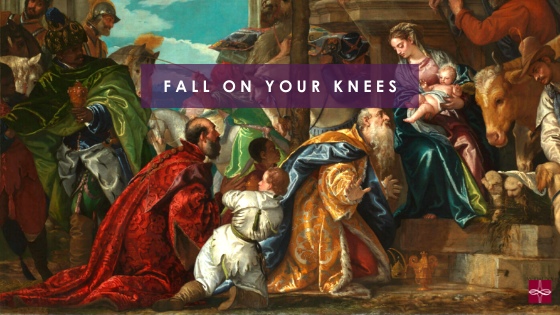




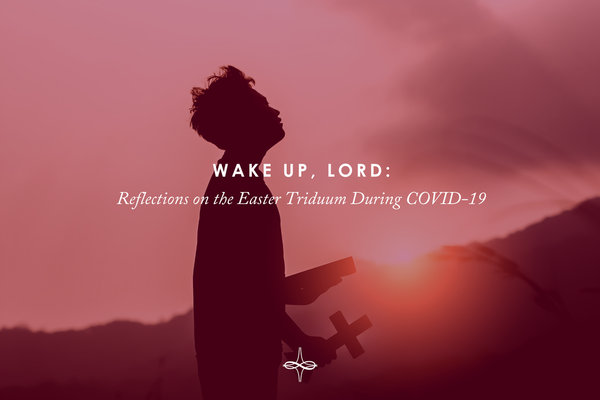
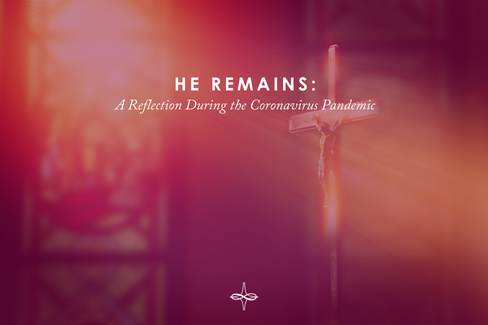

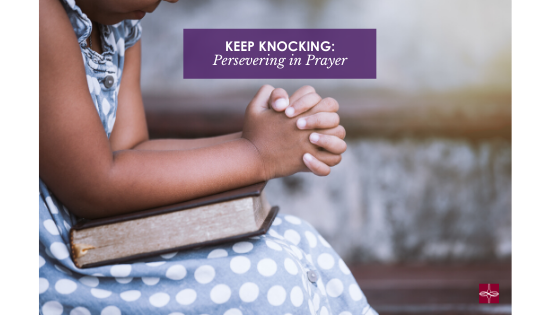


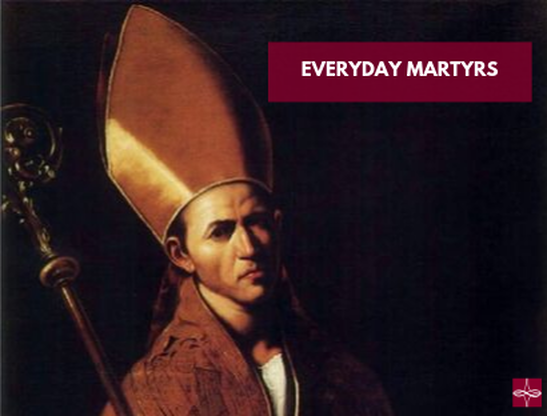



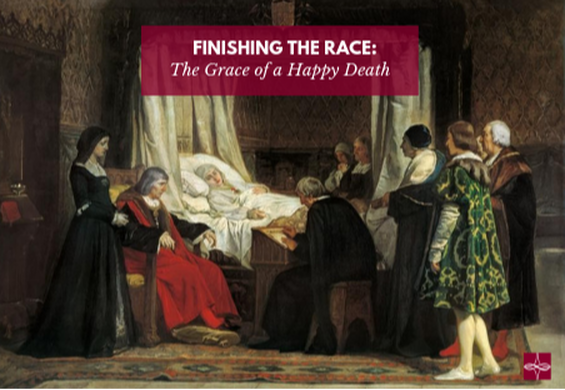

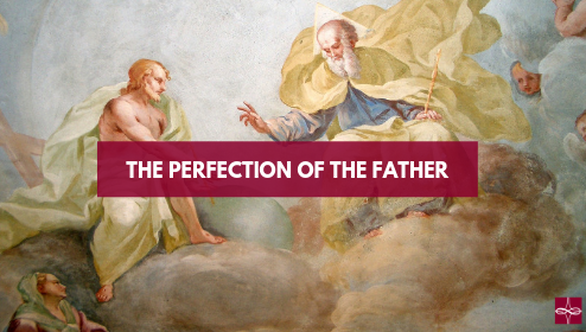

 RSS Feed
RSS Feed